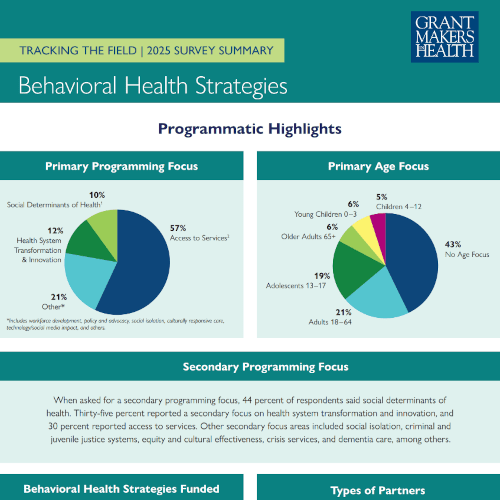Maternal Mental Health and Immigrant and Refugee Women, Parents and Communities
Pregnant and parenting immigrant, migrant, and refugee women are navigating a landscape marked by uncertainty, fear, and systemic exclusion—conditions that profoundly affect their physical and mental health during the perinatal and postpartum periods and throughout their lifespan. Amid increasingly punitive immigration policies, including family separation, detention, and deportation without due process, these women and their families face extraordinary challenges that endanger their mental health and wellbeing and that of their children. Compounding these harms are policy barriers such as the public charge rule, attacks on birthright citizenship, and exclusion from health coverage and other vital services. These stressors contribute to a growing but under-recognized crisis in maternal mental health, with long-term consequences for families and communities.
Funder Approaches to Addressing the Critical Connection Between Youth Mental Wellness and Financial Wellness
Curious about the connection between mental well-being and financial security during adolescence and young adulthood?
According to the National Alliance on Mental Illness, most mental health conditions are diagnosed during the same life stage when young people are building the skills and accessing opportunities that shape their financial futures. Mental and financial well-being are deeply interconnected—each influences and reinforces the other.
When young people experience mental wellness, they’re better equipped to manage money, handle stress, make informed decisions, and seek help when needed. At the same time, financial security reduces one of the most common sources of stress that can contribute to anxiety, depression, and other mental health challenges. Yet, despite these strong linkages, funders often treat mental health and financial well-being as separate priorities.

